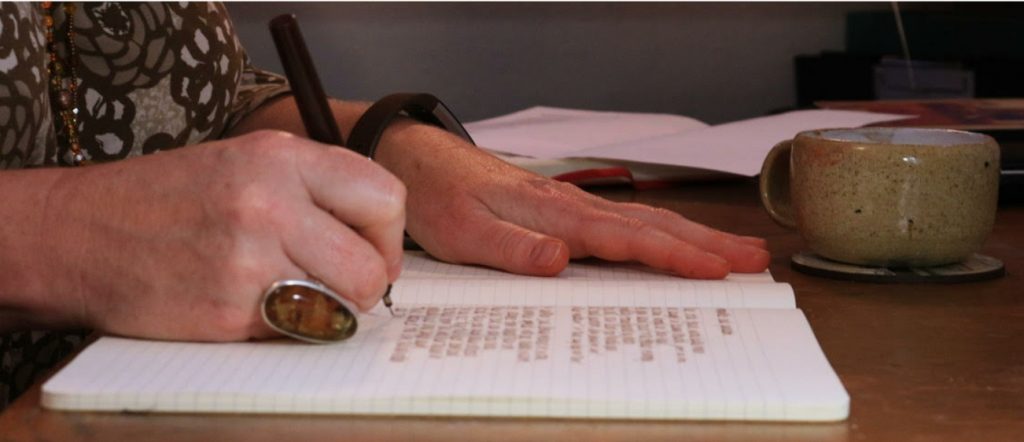Well, yes. It does. That’s one of the things that’s brilliant about it.
Think, for instance, of Jack Gilbert’s ‘Failing and Flying’, with its casual, almost conversational, opening line: ‘Everyone forgets that Icarus also flew’. In just those six words an entire culture is conjured, one where only winners matter and product always trumps process.
‘Failing and Flying’ is certainly a love poem, an exquisitely tender elegy for the ‘marriage… everybody/said… would never work’. It evokes the preciousness, the intensity and also the impermanence of the relationship: the image of ‘the gentleness in her/like antelope standing in the dawn mist’ is beautiful, reminding us that such a thing is a rare and fleeting gift, to be enjoyed even though—or perhaps because—it will only ever be brief. But ‘Failing and Flying’ is more than “simply” a love poem: like Cafavy’s ‘Ithaka’ it’s a plea that we honour the intentions with which we set out: honour the vagaries of journey and the unknowability of destination.
I can’t read the line ‘anything/worth doing is worth doing badly’ without beaming: it’s such a deliciously allusive and neat subversion of the Seven-Habits-Girl-Guides-Eat-The-Frog-Pomodoro-Technique maximisation culture we live in (in the West, anyway), wherein “anything worth doing is worth doing well”. Fie on that! Of course, I can’t imagine deliberately setting out to ‘[do something] badly’; but then this poem invites us to question what doing badly and doing well might actually mean. Surely it’s better to try and “fail” than be so anxious and daunted that you never begin? Icarus’ wings only melted because he got so near to the sun. ‘[He] also flew’. Imagine the view he must have had before ‘he… [came] to the end of his triumph’.
‘Failing and flying’ also makes visible the kind of niggardly, lofty, world-weary attitude which can dismiss a place, an entire people, on little evidence and, perhaps, simply for the sake of sounding experienced or “clever”. ‘[T]he people who/came back from Provence (when it was Provence)/and said it was pretty but the food was greasy’. You can hear the dismissive world-weariness in the voice—the been-there, seen-it-all attitude, the ennui and dissatisfaction with the world. Would you rather inhabit that, or the adventurous openness with which Icarus strapped on his wings and flew? I know which I’d prefer.
Without this poem I’d never be able to say to myself, when things “go wrong”, that I’m ‘coming to the end of [my] triumph’. I love saying that. It makes me smile; helps me be kinder to myself—take myself less seriously. Making visible some pervasive and toxic assumptions, ‘Failing and Flying’ gives us the chance to counter them—in ourselves at least, if not in the wider world (we have to start somewhere!). That seems worth doing, to me.
There’ll be more, next week, about how ‘poetry makes the invisible appear’; but in the meantime, how about you? Does ‘Failing and Flying’ speak to you? What poems do you rejoice in because they make something invisible appear? Get in touch—I’d love to know.

© Lucy Crispin 2019
What a delightful poem you’ve picked out here Lucy. Thank you for introducing me to it! I shall hold on to some of those lines in Failing and Flying. I love that line of yours too “poetry is what make the invisible appear”. Enjoy your writings and readings! Xx
Hey Clare, good to see you over here in my new place! Yes, it’s a great poem, isn’t it? Very comforting. I hope you’ll be introduced to some other new ones which speak to you, over the weeks and months – and maybe you can introduce me to some, too? x
Hello Lucy
I’m a poetry novice and so appreciate you unravelling ‘Failing and Flying’. ‘If a thing’s worth doing it’s worth doing badly’! I am going to pin a copy above my bookbinding bench and stop beating myself up quite so much…! Thank you.
Jenny, I need it pinned up in every room in my house! So glad you liked the poem (and that the unravelling was helpful). I hope there will be more things that resonate for you x